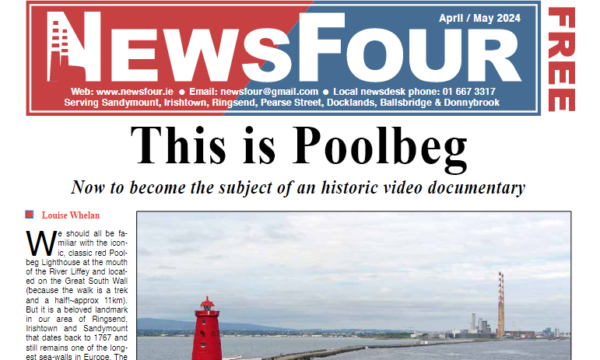
Despite the European Food and Safety Authority (EFSA) declaring that the use of the herbicide glyphosate, commonly known as ‘Roundup’, is ‘unlikely to cause cancer’ and extending its license for sale, the South Dublin County Council (SDCC) have recently passed a motion to ban its use and now the topic is on the DCC’s table for discussion.
Councillors Enda Fanning (SF) and Ossian Smyth (Green Party) requested a ban on the herbicide, based on a study done by the International Agency for Research on Cancer (IARC) who are a research arm of the World Health Organisation (WHO) that concluded that the chemical glyphosate is “probably carcinogenic to humans.”
So far, only the SDCC have passed a motion to ban its use, the Dun Laoghaire Rathdown area are continuing its use as advised by the Department of Agriculture, Food and Marine. A spokesperson for Fingal Council said they are continuing with its use while it implements its open space strategy with the use of more ground cover that they say reduces the need for glyphosate.
This month, NewsFour approached the DCC to see at what stage the discussions are on the herbicide and were informed that it is being progressed through discussion with the elected representatives at Area Committee meetings and Strategic Policy Committees but that as of yet no formal public consultation has been proposed.
The subject of its licence being temporarily extended by the EU in June of last year for another 18 months was a contentious issue among some considering the World Health Organisation reported it as potentially carcinogenic.
Sinn Féin Councillor for South East Area, Chris Andrews raised the question of alternatives to the herbicide and how much of the budget is allocated to its use to DCC Chief Parks Superintendent, Leslie Moore. In his answer, Moore, although mis-spelling glyphosate as glyphosphate, went on to inform Cllr Andrews that the DCC have several departments that use glyphosate-based products.
The amount used per year is approximately three thousand litres in total which is used by the Parks Service, Dublin City Council’s Roads Maintenance Division and Housing Maintenance. Moore said that Dublin City Council, at that time, were in the process of a cross-departmental review of the use of herbicides which will ‘explore, among other things, the viability of alternatives.’
The EFSA evaluation of the herbicide has been met with criticism in the media and at the end of September this year they released a statement on their website explaining the peer reviewed process that the study went through and took pains to point out they believe the distrust of their findings are ‘based on a misunderstanding of the peer review process.’
They denied plagiarising studies carried out by the companies applying for the re-authorisation of the active substance but, however, that is not what some media outlets were concerned about. Thatsfarming.com reported that the EFSA study was done on pure glyphosate without the surfactants that aids its uptake by a plant’s roots, that it is normally combined with, thus changing the result and perhaps explaining why it was found to be non-toxic in their studies.
By Paul Carton



